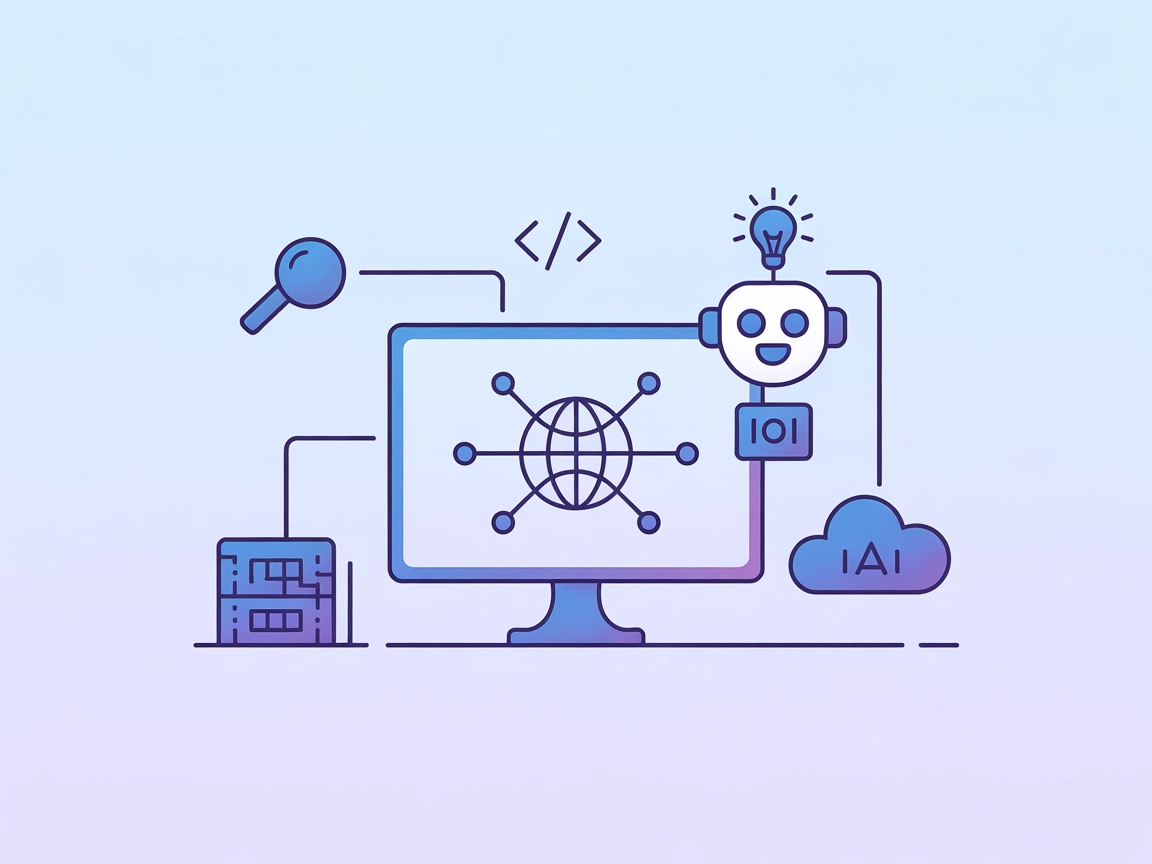
Firebase MCP Server
The Firebase MCP Server bridges AI assistants with Firebase services, enabling seamless integration with Firestore, Storage, and Authentication for smarter, aut...

Integrate Firefly MCP with FlowHunt for secure, AI-assisted cloud resource discovery and automation. Easily codify resources as Infrastructure as Code and manage multi-cloud environments from your favorite development tools.
FlowHunt provides an additional security layer between your internal systems and AI tools, giving you granular control over which tools are accessible from your MCP servers. MCP servers hosted in our infrastructure can be seamlessly integrated with FlowHunt's chatbot as well as popular AI platforms like ChatGPT, Claude, and various AI editors.
The Firefly MCP (Model Context Protocol) Server is a TypeScript-based server designed to integrate with the Firefly platform, enabling seamless connection between AI assistants and your Cloud and SaaS environments. Its key role is to allow AI clients to discover, manage, and codify resources from connected accounts, such as AWS or other cloud providers. By exposing resource discovery and codification capabilities, Firefly MCP empowers AI-driven workflows for tasks like infrastructure management and automation. The server supports secure authentication and is built for easy integration with development tools, including Claude and Cursor, enhancing developer productivity by allowing natural language queries and Infrastructure as Code generation.
npx @fireflyai/firefly-mcp
mcp.json configuration:{
"mcpServers": {
"firefly": {
"command": "npx",
"args": ["-y", "@fireflyai/firefly-mcp"],
"env": {
"FIREFLY_ACCESS_KEY": "your_access_key",
"FIREFLY_SECRET_KEY": "your_secret_key"
}
}
}
}
npx @fireflyai/firefly-mcp --sse --port 6001
{
"mcpServers": {
"firefly": {
"url": "http://localhost:6001/sse"
}
}
}
{
"mcpServers": {
"firefly": {
"url": "http://localhost:6001/sse"
}
}
}
npx @fireflyai/firefly-mcp --sse --port 6001
mcp.json), add:{
"mcpServers": {
"firefly": {
"url": "http://localhost:6001/sse"
}
}
}
Always keep your access keys secret and prefer environment variables for credentials:
{
"mcpServers": {
"firefly": {
"command": "npx",
"args": ["-y", "@fireflyai/firefly-mcp"],
"env": {
"FIREFLY_ACCESS_KEY": "your_access_key",
"FIREFLY_SECRET_KEY": "your_secret_key"
}
}
}
}
Using MCP in FlowHunt
To integrate MCP servers into your FlowHunt workflow, start by adding the MCP component to your flow and connecting it to your AI agent:

Click on the MCP component to open the configuration panel. In the system MCP configuration section, insert your MCP server details using this JSON format:
{
"firefly": {
"transport": "streamable_http",
"url": "https://yourmcpserver.example/pathtothemcp/url"
}
}
Once configured, the AI agent is now able to use this MCP as a tool with access to all its functions and capabilities. Remember to change “firefly” to whatever the actual name of your MCP server is and replace the URL with your own MCP server URL.
| Section | Availability | Details/Notes |
|---|---|---|
| Overview | ✅ | Summary and features from README.md |
| List of Prompts | ⛔ | No explicit reusable prompt templates listed |
| List of Resources | ✅ | Resource discovery, codification, secure authentication |
| List of Tools | ⛔ | No explicit tool methods listed |
| Securing API Keys | ✅ | Supported via env variables and config |
| Sampling Support (less important in evaluation) | ⛔ | Not documented |
Based on the available documentation and repository structure, Firefly MCP offers a solid overview, security guidance, and resource integration, but lacks detail on prompt templates, tools, roots, and sampling features. As such, it is functional but not fully documented for the breadth of MCP capabilities.
MCP Score: 5/10
Firefly MCP covers the basics for setup, usage, and resource integration with clear documentation and a permissive license, but lacks advanced MCP features and detailed tool/prompt support in its public repository.
| Has a LICENSE | ✅ (MIT) |
|---|---|
| Has at least one tool | ⛔ |
| Number of Forks | 1 |
| Number of Stars | 8 |
The Firefly MCP Server connects AI agents to your Cloud and SaaS environments, enabling resource discovery, management, and codification as Infrastructure as Code. It provides secure authentication and seamless integration with development tools for AI-driven cloud automation.
Firefly MCP is compatible with tools such as Windsurf, Claude, Cursor, and Cline, making it easy to leverage its capabilities in your preferred development environment.
Firefly MCP uses secure access keys for authentication and recommends storing credentials as environment variables to keep sensitive information safe.
Common use cases include cloud resource discovery, generating Infrastructure as Code (like Terraform), multi-cloud management, and using AI to automate infrastructure tasks.
Yes, Firefly MCP is open source and licensed under the MIT License.
Empower your AI agents to manage cloud resources and automate infrastructure with Firefly MCP. Integrate with FlowHunt and streamline your DevOps workflows.

The Firebase MCP Server bridges AI assistants with Firebase services, enabling seamless integration with Firestore, Storage, and Authentication for smarter, aut...

The Firecrawl MCP Server supercharges FlowHunt and AI assistants with advanced web scraping, deep research, and content discovery capabilities. Seamless integra...

The Fireproof MCP Server bridges AI assistants and the Fireproof database, enabling seamless storage, retrieval, and management of JSON documents via LLM tool u...
Cookie Consent
We use cookies to enhance your browsing experience and analyze our traffic. See our privacy policy.